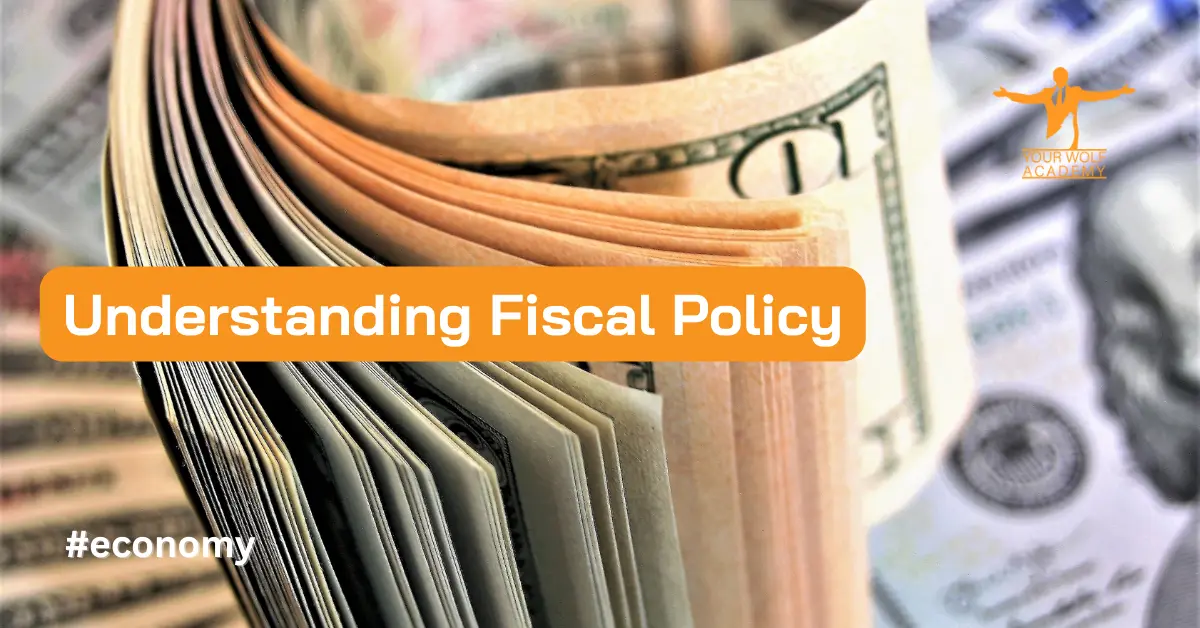Fiscal policy is a critical aspect of macroeconomics that governs how governments manage their spending, taxation, and borrowing to maintain economic stability. Essentially, it is the government’s use of its revenue and expenditure policies to influence the economy’s performance.
The primary objective of fiscal policy is to promote economic growth, job creation, and price stability. In this article, we will delve into the definition, importance, and tools of fiscal policy.
Definition of Fiscal Policy
Fiscal policy refers to the government’s use of taxation, spending, and borrowing to influence the economy’s performance. In other words, it is a set of policies that determine how the government collects revenue and how it spends that revenue to achieve its economic objectives.
Importance of Fiscal Policy
Fiscal policy is an essential tool for promoting economic growth, job creation, and price stability. Governments use fiscal policy to achieve these objectives by adjusting their revenue and expenditure policies. Below are some of the reasons why fiscal policy is crucial for economic stability:
- Promoting Economic Growth: By increasing government spending on infrastructure, education, and health care, fiscal policy can stimulate economic growth. This increased spending creates jobs, raises incomes, and generates demand for goods and services.
- Job Creation: Fiscal policy can also create jobs by increasing government spending on public works projects, such as roads, bridges, and airports. These projects provide employment opportunities for workers in construction, engineering, and other related industries.
- Price Stability: Fiscal policy can help maintain price stability by regulating government spending and taxation policies. By managing inflation and deflation, fiscal policy helps ensure that prices remain stable, and the economy remains healthy.

Tools of Fiscal Policy
Governments use several tools to implement fiscal policy. These tools include:
- Government Spending: Government spending is a significant tool for implementing fiscal policy. By increasing or decreasing government spending, the government can stimulate or slow down economic growth. When the government spends more money on public works projects, it creates jobs and generates demand for goods and services. Conversely, when the government reduces its spending, it slows down economic growth.
- Taxation: Taxation is another essential tool for implementing fiscal policy. Governments use taxation to generate revenue that they can use to finance public projects and services. By increasing or decreasing taxes, governments can influence economic activity. When taxes are high, people have less disposable income to spend, which can slow down economic growth. Conversely, when taxes are low, people have more disposable income to spend, which can stimulate economic growth.
- Public Debt: Governments also use public debt to implement fiscal policy. Public debt is the money that the government borrows to finance its spending. When the government borrows money, it increases its debt, which it must eventually pay back with interest. By borrowing money, the government can finance public projects and services that can stimulate economic growth.
- Transfer Payments: Transfer payments are payments made by the government to individuals or businesses. Examples of transfer payments include welfare payments, social security benefits, and subsidies. By increasing or decreasing transfer payments, governments can influence economic activity. For example, by increasing social security benefits, governments can stimulate consumer spending, which can promote economic growth.
Conclusion
In conclusion, fiscal policy is a critical aspect of macroeconomics that helps governments manage their spending, taxation, and borrowing to maintain economic stability. The tools of fiscal policy, including government spending, taxation, public debt, and transfer payments, enable governments to influence economic activity and promote economic growth, job creation, and price stability.
However, fiscal policy can also have unintended consequences if not implemented effectively. For example, excessive government spending and borrowing can lead to high levels of public debt, which can lead to inflation and reduced economic growth. High taxes can also reduce consumer spending and discourage investment, which can slow down economic growth.
Therefore, it is essential that governments use fiscal policy responsibly and effectively to promote economic stability. This includes monitoring economic indicators such as GDP, inflation, and unemployment and adjusting fiscal policies accordingly.
Overall, fiscal policy plays a critical role in shaping the economy, and understanding its definition, importance, and tools is crucial for individuals, businesses, and policymakers alike. By using fiscal policy effectively, governments can promote economic stability, job creation, and price stability, which benefits everyone in the economy.
Your Wolf Academy offers a range of educational resources to help traders succeed, including free signals, technical analysis, and weekly webinars. Sign up today and get a recommendation for a regulated brokerage company that suits your needs.


